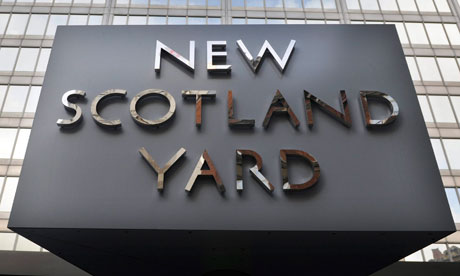by Harsh K Luthar
Religion and spirituality today are a big business. Generally the spiritual teachers, preachers, and the so called enlightened masters of the day are really motivational speakers and self styled self-help expert who are engaged in entrepreneurial ventures aimed at financial and commercial success. Every year people spend billions of dollars buying the books, CDs, and self-help programs offered by such teachers.
The commodity that the spiritual teachers in the new age sell in the free market is called “Enlightenment”. Enlightenment is intangible and not well defined as a product. The cost of production and storage costs of “Enlightenment” are very low, and so there is always plenty in the inventory to sell! Of course, there is the cost of marketing “Enlightenment”. Still even with that expense, the profit margins for this product or service have the potential to be very large for the established experts or the spiritual teachers.
In a very real and substantive sense, the so called modern teachers of “enlightenment” are far removed from the sages of old who cared nothing for money and financial gains and adopted a life of humility, poverty, and service. Some of the well known saints of India such as Sri Ramakrishna and Sri Ramana did not even touch money with their hands. Generally, in almost all the pictures, Sri Ramana is shown wearing one simple cloth piece called Kaupina, which is equivalent to an Indian underwear. These sages were venerated by their followers because they demonstrated in their life what true enlightenment embodies.
Many of the spiritual entrepreneurs of the day appear to seek the adoration and veneration from their followers without much inclination towards demonstrating behavior or conduct befitting a sage. Although it seems self-evident to most objective observers, it is not always obvious to many disciples and students of yogis, spiritual teachers, and cult leaders that their gurus are simply human beings and therefore limited and sometimes deeply flawed.
Just like the students, the so called “gurus”, “masters”, and “spiritual teachers” are susceptible to all the weaknesses of the body and the mind. I have observed that the humanity of spiritual teachers or leaders is very difficult for many of their followers to accept. The mentoring relationship between a spiritual guru and his/her disciples can be very complex. When the students realize that their spiritual leader, despite claims to moral superiority and being divine, etc., is just like them, it can come as a shock, a rude awakening. For many followers this can be a very traumatic event.
Many people continue to view their guru or their spiritual leader as being infallible even when overwhelming evidence points in the exact opposite direction. To avoid facing the painful reality, some followers interpret the facts of their leaders conduct in creative ways to explain them away somehow. It happens. One has to only read the newspapers and the Internet sites to discover all the information there. Spirituality and selling of wisdom is a huge business. The behavior of spiritual leaders can be analyzed from that perspective for a more complete understanding of the business of enlightenment.
Of course, we need to understand each others’ humanity and even forgive friends, teachers, and gurus when they have made mistakes in judgement. I am not criticizing the whole spiritual arena but simply pointing out the importance of objectively and rationally assessing situations involving marketing of wisdom by the spiritual leaders of the day, whoever they may be and in whatever religious or spiritual tradition.
The need to remain loyal to our own intelligence and common sense when analyzing facts and situations, even when it comes to spiritual teachers, is important. To put another human being on a constant pedestal, even if that person is a guru or a spiritual teacher, is not fair to either that person or our own self.
Who is the ultimate Guru, other than our own Heart? This is the sacred Truth that we should grasp firmly and make it our own.
I don’t like to be overly critical of spiritual teachers in any religion or spiritual tradition. Certainly, they bring many benefits to people and parts of humanity. But it seems to me that that many of the so called “gurus” and “spiritual masters” are plainly lacking in anything but the most superficial insight and knowledge.
Many of these self-help and self-proclaimed gurus struggle with serious emotional and psychological issues and need to be constantly on a power trip and thrive only when dominating their students and disciples. Some of these so called “spiritual teachers” even appear to lack proper mental balance, suffer from low self-esteem, and need to carefully reflect on their actions and behaviors before they go around advising others on how live properly.
It is no wonder that traditional religious and yogic orthodoxy in India responded so negatively to the attacks of Jiddu Krishnamurti and later Rajneesh (Osho). Despite the serious personal limitations and weaknesses of these two critics of the existing orthodoxy, they were powerful voices in pointing out the hypocrisy of gurus and masters in spiritual traditions who “sell” Universal Truths, and make disciples dependent upon them.
Ironically, both J. Krishnamurthy and Rajneesh (Osho) fell into the same mental and spiritual traps that they accused other teachers of being in. It happens. This is all part of the human condition. Everyone, including the so called gurus and teachers and the enlightened ones are struggling to find their place and path in this world. As long as “Enlightenment” is viewed as a commodity that can be sold and bought, there will be sellers and buyers. This is simply how the free market works!
I don’t know if it is completely up to us to decide what our part in the spiritual circus is. We should not be overly judgemental but simply use our rational intelligence in evaluating the spiritual scene. Despite the force of circumstances, if we stay aware and devoted to the Heart, the True inner Guru, I feel we will be OK.
Love and Namaste to all — Harsh K. Luthar

